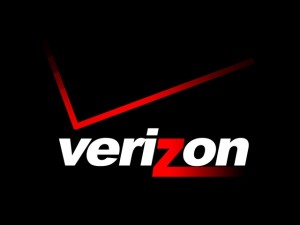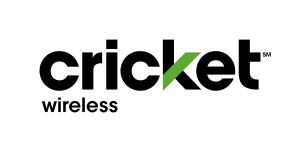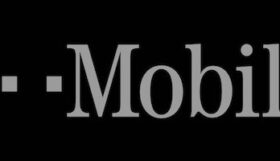Cellphone Wars – It’s On!
The cellphone market is one of the most competitive technology service industries on earth. African-American customers need to be aware and take advantage of the cellphone wars. You can get paid to switch from one service provider to another. Early cancellation fees be damned. You can get substantially reduced monthly bills, new phones for you and your family and get better deals on data, voice and text packages. You can even go no contract and be totally free of obligations. The war between phone companies is on and the customer is the prize.
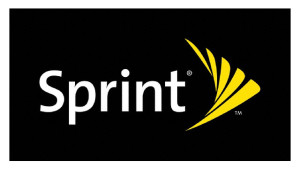 Right now Sprint is going after competitor’s customer’s with a vengeance. Their latest move promises to cut new customer’s cellphone bills in half. In a recent press release Sprint CEO Marcelo Claure said “It’s as simple as this: Bring Sprint your Verizon or AT&T bill along with your phone and we’ll cut your rate plan in half. That’s a 50% savings on your rate plan every month.” And you don’t have to pay early cancellation fees either. Sprint will pay you $350 per line to switch services. The deal does not apply to T-Mobile customers.
Right now Sprint is going after competitor’s customer’s with a vengeance. Their latest move promises to cut new customer’s cellphone bills in half. In a recent press release Sprint CEO Marcelo Claure said “It’s as simple as this: Bring Sprint your Verizon or AT&T bill along with your phone and we’ll cut your rate plan in half. That’s a 50% savings on your rate plan every month.” And you don’t have to pay early cancellation fees either. Sprint will pay you $350 per line to switch services. The deal does not apply to T-Mobile customers.
Cellphone service providers have brought in customers before with some really cheap introductory rates that expire after a period of time. But Sprint’s offer is permanent making it that much more impressive. This is a valiant effort from Claure who has his work cut out for him as Sprint has lost customers for 11 straight quarters. Claure, a native Bolivian, is also reaching out to the Hispanic market for customers. And why not? Latinos are America’s fastest growing demographic.
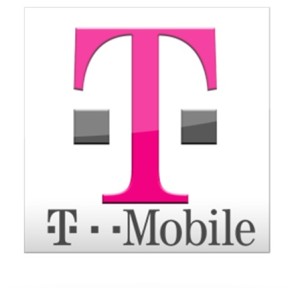 T-Mobile is in the war for customers too and is offering its Contract Freedom plan that pays as much as $350 per line termination fees for customer to switch to their service. On the data front T-Mobile is battling with its new Data Stash program. With this new data plan the customer can save the data they have paid for each month for up to a year and use it when they need it. Data Stash is included at no extra charge for every new and existing T-Mobile customer on an eligible Simple Choice plan with extra high-speed data for their smartphone or tablet. The plan is a good idea for someone but no competition for the Sprint Unlimited Plan that includes unlimited voice, text and data.
T-Mobile is in the war for customers too and is offering its Contract Freedom plan that pays as much as $350 per line termination fees for customer to switch to their service. On the data front T-Mobile is battling with its new Data Stash program. With this new data plan the customer can save the data they have paid for each month for up to a year and use it when they need it. Data Stash is included at no extra charge for every new and existing T-Mobile customer on an eligible Simple Choice plan with extra high-speed data for their smartphone or tablet. The plan is a good idea for someone but no competition for the Sprint Unlimited Plan that includes unlimited voice, text and data.
Verizon is not looking real aggressive either but they do have a dog in the fight. Verizon’s big selling point is its network. The company claims to have the only 4G network that is 100% LTE that covers more than 95% of Americans. The company is also dangling $150 to switch carriers but for a limited time only. Verizon is also offering unlimited text and talk time but only a sharable data plan with no rollover. The company’s family plan offers four phones and 10G of shareable data for $140. They also offer phones that act as Wi-Fi hotspots at no extra charge but you pay for the data you use.
My advice to anyone who is shopping for a data plan is to ask questions. The first question is; will my data be throttled? That is the practice of slowing down data transfer for people who use a lot of data or data hogs as the companies may call them. Some cell phone companies throttle customers they consider data hogs regardless of the plan they purchase. But if you really want to shop for unlimited cell phone plans there is a website that is built just for that purpose. Visit ConsumerReports.org for a full unbiased comparison of all the available plans to choose from.
Sprint’s Claure maybe fighting for customers at the right time as T-Mobile was recently slammed by the FTC for billing customer’s cellphone bill for unauthorized services. A practice known as cramming. The charges amounted to hundreds of millions of dollars. This news is sure to cause some defections for the Sprint deal. But T-Mobile reported a net gain of 2.1 million customers in the final quarter of 2014.
As part of the settlement T-Mobile will pay $90 million punishment for “mobile cramming.” That is, if the agreement is approved by a U.S. District Court. If so it would resolve an FTC lawsuit filed in July.
Most of the settlement money, $67.5 million, will be refunds to consumers fraudulently charged after Jan. 1, 2010. T-Mobile will have to either provide direct payments to the customer or forgive an equal amount on their bills. T-Mobile has agreed, as part of the settlement, to get consumers’ “express informed consent” before placing third-party charges on their bills in the future, the FTC said.
FTC Chairwoman Edith Ramirez said a statement, “Consumers should be able to trust that their mobile phone bills reflect the charges they authorized and nothing more.”
The T-Mobile settlement is just the most recent cell carrier to get hit for cramming. In an industry wide crackdown on wireless carriers for cramming AT&T agreed to pay $105 million to settle cramming charges. As a result of these settlements both companies could owe consumers hundreds of millions of dollars. In December Sprint was also hit with lawsuits filed by the FCC and the Consumer Financial Protection Bureau over allowing similar charges.
AT&T, the second largest carrier in this war, is fighting for customers, both its own and new ones. In February the company announced new price cuts for family plans and offered additional discounts for new customers. To retain its current customers AT&T is extending a one time $100 credit to customers who renew and on each new line they sign up for. Other weapons deployed by AT&T include its AT&T Next phone upgrade program that lets you pay for your new phone over time. That is probably a good deal for the gadget hounds who need the latest phone on the market. AT&T also offers a base plan that provides unlimited text and talk with 10GB of data service. AT&T also jumped into the roll over data battle by introducing their own data rollover plan.
Everywhere you turn you can find ads for cell carriers describing what they can do and how much better they are than the other guy. And the pre-paid services are in the fight as well.
Cricket pre-paid brand is arming up to aggressively fight for customers. The company offers up to $100 for switching although the offer is slightly deceptive. The fine print limits it to customers of other pre-paid service providers.
Cricket is ready to make quick adjustments to its rate plans to respond to competitive pressures. Cricket President Jennifer Van Buskirk was interviewed by FierceWireless.com and said that the company has opened hundreds of new stores in the three and a half months since offering new price plans, a new tagline and and a new store design. The company has also announced it will start selling its services, smartphones and accessories exclusively in more than 2,800 GameStop stores nationwide starting this past October. There’s just one problem with all that bluster from Cricket Wireless, the company is owned by AT&T. AT&T also offers GO Phone another no contract service provider.
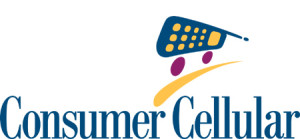 Other pre-paid service providers are positioning themselves to attack particular market segments. For example Consumer Cellular is fighting for position in the market for senior cellphone users with an aggressive advertising campaign. Great Call is counter punching in the senior market with its Jitterbug cell phones designed for seniors with services such as health and safety experts with its 5-Star service plan.
Other pre-paid service providers are positioning themselves to attack particular market segments. For example Consumer Cellular is fighting for position in the market for senior cellphone users with an aggressive advertising campaign. Great Call is counter punching in the senior market with its Jitterbug cell phones designed for seniors with services such as health and safety experts with its 5-Star service plan.
Fighting for customers means no one is going to be without a phone including low income and credit challenged customers. The combatants know that every market is worth fighting for. AT&T owns two prepaid cellphone companies and Sprint owns VirginMobile and BoostMobile prepaid service. Tracfone is throwing punches of its own and offering to let the new customer bring their own phone saving the expense of buying a new phone. But remember this is a war so AT&T and Verizon lets you bring your own device as well.
You can walk into any Wal-mart store and see the numerous prepaid cell offering from TracFone, Cricket, VirginMobile, MetroPCS, Straight Talk, NET10 Wireless. But you can also check out Amazon.com and Walgreen’s stores. All these services are fighting for customers because the market has reached a saturation point. Everyone already has a cell phone. These companies have to answer the question; now what?

